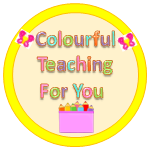Developing reading comprehension skills is important for early readers. For young children, it will help them better understand, appreciate and enjoy reading books.
Personally, I enjoy reading all types of books to my kids but to really capture their attention, I read picture books to them. When you start with books that captivate them, they’ll want to keep reading, which will make it easier to develop their reading comprehension skills.
In time, as you develop these skills, it will help them comprehend their textbooks, literature they read online, and so much more.
The following strategies will help your child develop their reading comprehension skills. These steps pair beautifully with the following articles: How to Teach 3 and 4 Year Old Children to Read, or How to Teach 3 and 4 Year Old Children to Learn the Alphabets.
Reading Comprehension Steps:
#1. Read Aloud
Choose fun books to read for your kids so that they are engaged and excited to listen to you read. This will keep them asking questions and developing their ability to be curious about the book.
While you’re reading, model this for your kids by asking thought provoking questions. Either you can answer it or have your kids answer it.
#2. Find Age Appropriate Books
If you’re a teacher, assess your child to gauge their reading level. For parents, check in with your child’s teacher about it.
Choose books that match their reading level so that they aren’t struggling to read. Your children should be able to read about ninety percent of the words. If they have to stop to understand more words than that, it will take away from them being able to understand what they’re reading as they’ll be too focused on trying to read the words.
#3. Assess Background Knowledge
Look at what your children already knows about the books that that they’re reading. Ask them what they know about the topic. Look at the different pages and see what they know about the specific sections.
When you choose a book relating to a topic of interest, they’ll be more engaged. However, you don’t have to just stick to those subjects. You can choose books about topics that you’re child isn’t familiar with and develop their knowledge about it before you read the book so that they’re constantly learning. The good thing is that children at this age are always curious and ask millions of questions.
#4. Look for Clues
Have your children look at the pictures and tell you what’s happening in the picture. Based on those clues in the pictures and of those on the cover, ask them what they think the book is about.
As you read the book together, ask leading questions about the pictures and the words so that children can build on their previous knowledge.
After you finish reading the book, ask them if their thoughts were true or if it was slightly different. Ask them if they enjoyed the book. Why or why not?
#5. Keep Repeating
Children like reading the same books over and over again as it helps them feel more confident. Let them read the book as many times as they want to and continue checking for understanding. Did they learn anything new?
Recap:
Let’s recap really quickly. Today, we looked at the following:
- The reasons why it’s important to help your children develop their reading comprehension skills.
- How can I help my 3 and 4 year old with reading comprehension: read aloud, find age appropriate books, assess background knowledge, look for clues, and keep repeating.
Free Resources:
For a taste of the resources that were mentioned in step two, check out the following resource in my FREE Education Resource Library.
Teach your little ones how to make good choices with the following FREE Resource:
Next Steps:
If you found this video beneficial, would you do me a favor? Share this with your family, your friends, your loved ones, your co-workers or someone who you think could benefit from this. Thank you!
I’ll see you next Friday at 5:30pm PST.
Until I see you next time, remember to create, experience & teach from the heart.
Take care,
Charlotte
Disclaimer: I’m a teacher and a parent. I’m not a medical professional, so please don’t take this as medical advice. The advice that I provide in my videos and online are strategies that I have used in my own class or at home that have worked beautifully.


